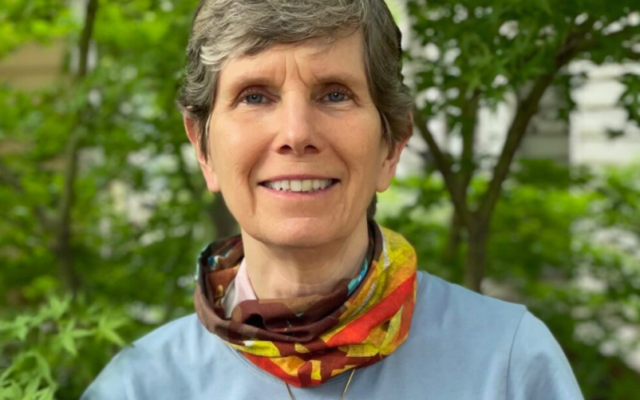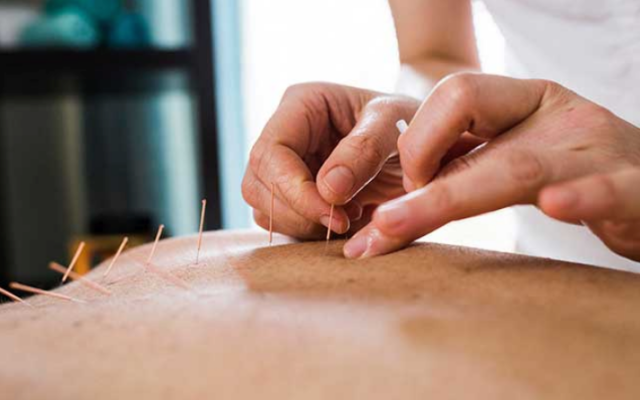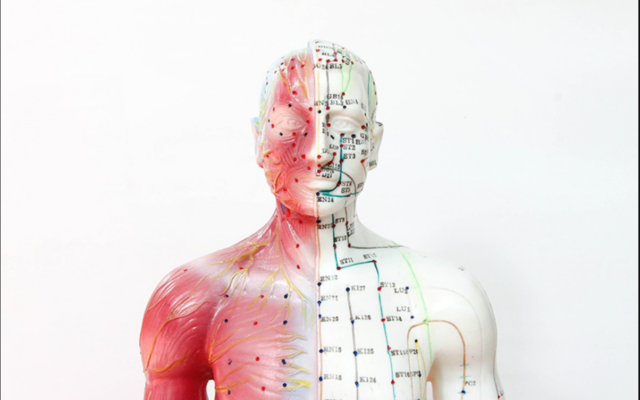Daughter of Holocaust Survivors Opens Clinic
Longtime psychiatrist becomes an advocate for the nontraditional treatments of acupuncture.

When Barbara Lopes Cardozo retired from a long and distinguished career as a psychiatrist working for the Centers for Disease Control and Prevention in Atlanta, she chose not to continue her practice of traditional medicine, she became an acupuncturist.
She was drawn to the practice of healing that goes back over 2,000 years in Asia by her own experience. For her, the practice of inserting small needles at specific points in the body to stimulate the natural healing process was astonishing.
“Some time ago, I had some serious health issues, and nothing was working for the pain that I was having,” Cardozo said, “so I tried acupuncture and it worked, like magic. Acupuncture may not work for everyone, but it has been shown to be effective in relieving lower back pain and in my own field of psychiatry, it can help to lessen anxiety and depression.”
There are said to be more than 400 acupuncture points located along 20 lines or meridians that run through the body. Depending on the diagnosis, acupuncturists insert small, very thin needles along these meridians and stimulate the points during a treatment that usually lasts about an hour. According to studies by the National Institutes of Health, acupuncture, either as a standalone therapy or in combination with conventional treatment has been shown to be effective in almost three dozen physical conditions, particularly in disorders that are related to the muscular and skeletal systems such as fibromyalgia, carpal tunnel syndrome, and arthritis.

The Federal government founded the National Center for Complementary and Integrative Health in 1998 as part of the National Institute of Health for training, scientific research and to broaden the understanding and acceptance of medical alternatives. A number of prestigious medical centers around the country, including the one at Emory University, have started acupuncture programs.
Dr. Cardozo practices the Japanese form of acupuncture that developed from its Chinese origins over more than 1,500 years. The needles that are used are thinner, but sharper. Needles tend to be inserted closer to the surface of the skin than the Chinese practice which created a gentler needling with less discomfort to the patient.
Interest in what are called complementary and alternative medicine has been growing in recent years. Increasingly, patients who are dissatisfied with the results they are receiving from traditional drug therapies are trying a variety of what had once been considered ineffective. Starting about 50 years ago, practices like massage, meditation and mindfulness, yoga, and Ayurveda, which originated in India, and reiki, which has its origins in Japan, have increasingly been accepted.

In some cases, acupuncture treatment can be covered by Medicare or other health insurance plans. Recent statistics indicate that as many as one-third of all Americans have sampled at least one form of these alternative treatments.
While public attitude may be changing, medical doctors have been hesitant to combine these kinds of treatments with more traditional medical practice.
“I look at both sides,” Cardozo said. “I’m a medical doctor, but I’m also very interested in knowing that alternative medicine can also be useful. I think it depends very much on the type of diseases that you have. And sure, certain things work very well, you know, with Western medicine and for other things it just doesn’t work at all or not very well. And so, I think, it’s very good to combine different methods for short term conditions.”
It is perhaps not surprising that Dr. Cardozo has decided to establish a practice based on science from Asia. She has lived and worked in a number of countries.
I look at both sides. I’m a medical doctor, but I’m also very interested in knowing that alternative medicine can also be useful. I think it depends very much on the type of diseases that you have. And sure, certain things work very well, you know, with Western medicine and for other things it just doesn’t work at all or not very well. And so, I think, it’s very good to combine different methods for short term conditions.
She grew up in Holland, to parents who had survived the Holocaust by successfully hiding from the Nazis. Her grandfather and great-grandfather were rabbis and leading religious figures before Holland was invaded by German troops during World War II.
She was a founding member of the Dutch branch of Doctors Without Borders, an organization that was awarded a Nobel Prize in medicine for its working to help countries recover from various natural disasters.
At the CDC, she founded their mental health program that is used in humanitarian rescue programs in countries like Peru, Colombia, and Israel. She has also worked on mental health promos in warring nations such as Kosovo.
In addition to work at her practice in Decatur, she volunteers to provide clinical psychiatric service at Grady Hospital, and she supervises Emory University’s psychiatric program for medical residents at the Clarkston Community Health Center in Clarkston, Ga.
- Senior Living
- Health and Wellness
- Bob Bahr
- Barbara Lopes Cardozo
- Centers for Disease Control and Prevention
- acupuncture
- National Institutes of Health
- fibromyalgia
- carpal tunnel syndrome
- arthritis
- National Center for Complementary and Integrative Health
- Emory University
- Massage
- meditation and mindfulness
- yoga
- Ayurveda
- holocaust
- World War II
- Doctors Without Borders
- Nobel Prize
- Grady Hospital
- Clarkston Community Health Center



comments